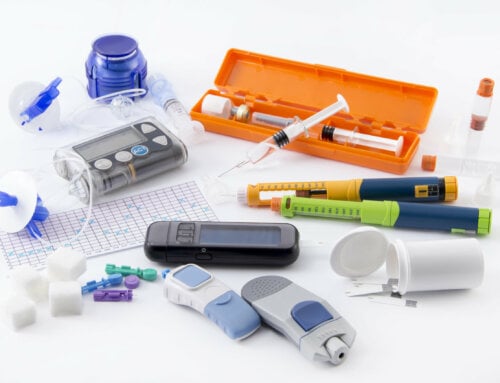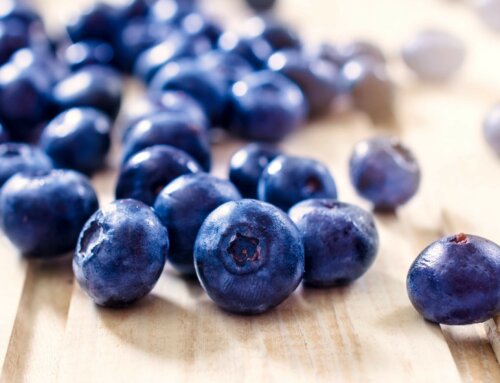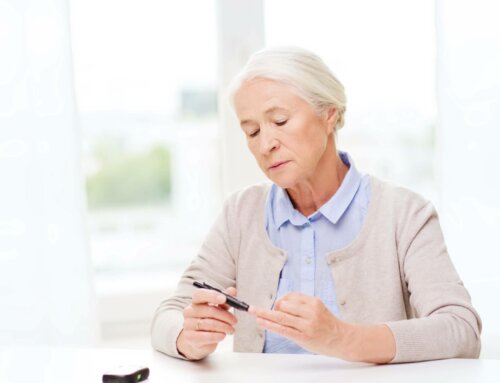The holidays are a time of temptation with parties, food and alcohol. If you have diabetes, you realize the importance of choosing your foods and drinks wisely. Should you drink alcohol during the holidays with diabetes? Let’s find out.
- Holiday gatherings with friends and family often mean being surrounded by tempting food and drinks. Many people want to have an alcoholic beverage or two during this time of year to celebrate. Most of you can drink alcohol during the holidays when you have diabetes but it really depends on your personal health and list of medications. You should check with your health care provider and always drink in moderation. Alcohol contains extra calories that add up quickly and can contribute to holiday weight gain.
- Women with diabetes should have no more than one drink per day and men should have no more than two drinks per day if they are younger than 65. Men over 65 should have only one daily drink if allowed. This would be considered 12 ounces of beer, 8 ounces of malt liquor, 5 ounces of wine, 4 ounces of champagne or 1.5 ounces of liquor or distilled spirits such as vodka, rum or whiskey. Try to stick to light beer or dry wine when possible.
- Ethyl alcohol is the intoxicating element found in wine, beer and liquor. Alcohol is made by fermenting yeast, sugars and starches. As a result, consuming alcohol may cause your blood sugar levels to soar. Usually, the immediate reaction to drinking alcohol is a drop in blood sugar since your liver stops churning out sugar to metabolize the actual alcohol. Try to check your blood sugar levels before and after drinking alcohol to look for your pattern. Also use a blood pressure monitor to check your blood pressure levels since alcohol can cause it to rise.
- When you have diabetes, you should always eat food when you drink alcohol to avoid getting a hypoglycemic or low blood sugar reaction. Choose low-fat, low-sodium and low-sugar foods to eat when you consume alcohol including fruits, vegetables, whole grains, low-fat dairy and lean meat or fish. Combine a protein and carbohydrate for safety when drinking.
- Select your holiday drink carefully to avoid packing on the pounds and raising your blood sugars. For example, popular holiday drinks such as a margarita or eggnog can have over 400 calories in a one-cup serving plus lots of added sugar. Better choices include light beer or dry white or red wine. Try mixing half wine with half seltzer water to create a wine spritzer. When you drink liquor, opt for a zero-calorie mixer such as diet soda, club soda or water. Pour liquor over ice cubes.
- Check with your doctor prior to the holidays to see if it is alright to have an occasional drink. Consuming too much alcohol may cause your blood sugar to plummet. This can lead to feelings of dizziness, sweating, shakiness, blurry vision, weakness, sleepiness or confusion. These symptoms may occur right after drinking alcohol and could last up to 12 hours. Never drink when your blood glucose is low. Check your blood sugar before going to bed to make sure it is at a safe level between 100 and 140 mg/dL. Report any extreme highs or lows to your doctor right away.
- Keep in mind certain medications you take may interact harmfully with alcohol and lead to negative side effects. Consult with your doctor or pharmacist about your medications and whether you can drink alcohol while taking them. Common medications that may interact poorly with alcohol include antidepressants, birth control pills, blood pressure and heart medications, cholesterol-lowering medications, pain killers, sleeping pills, gastro-esophageal reflux and ulcer drugs as well as diabetes medications such as Metformin.
- Never drink and drive. This can lead to accidents that cause harm to yourself and others. Bring or pick a designated driver and have a buddy or family member that knows what to do if you show signs of diabetic distress after drinking.
- The best choice may be to avoid drinking altogether. Focus on having fun with the people you love. Make exercising a new habit during holiday gatherings. Take a wintry walk together or dance to your favorite music. There are plenty of ways to have a good time without drinking alcohol.
The holidays are a time of joy, cheer and parties. If your doctors approve, you can drink in moderation during the holidays. Keep track of your calorie and blood sugar levels to avoid emergencies.







Leave A Comment